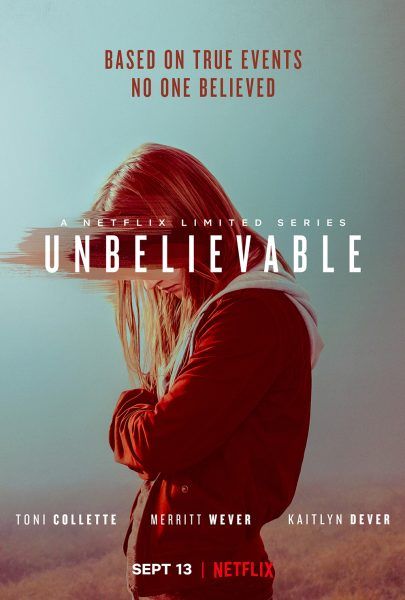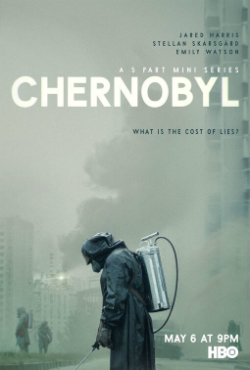_poster.jpg) Jojo Rabbit is a satire about Nazi Germany. That alone should tell you to expect some extreme tonal whiplash. Based on Christine Leunen's novel, Caging Skies, writer-director Taika Waititi has created a movie that genuinely beggars belief. I was raucously amused at the beginning, squirming and uncomfortable in the middle, and in the final scene, I suddenly started crying, because it turned out the entire movie had been about the triumph of the human spirit. It's a joyous ending that one would not expect from a movie about Nazis, and I was completely bowled over by how the hell Waititi manage to pull off this impossible film.
Jojo Rabbit is a satire about Nazi Germany. That alone should tell you to expect some extreme tonal whiplash. Based on Christine Leunen's novel, Caging Skies, writer-director Taika Waititi has created a movie that genuinely beggars belief. I was raucously amused at the beginning, squirming and uncomfortable in the middle, and in the final scene, I suddenly started crying, because it turned out the entire movie had been about the triumph of the human spirit. It's a joyous ending that one would not expect from a movie about Nazis, and I was completely bowled over by how the hell Waititi manage to pull off this impossible film.The wonderful Roman Griffin Davis stars as ten-year-old Johannes "Jojo" Betzler, an extremely patriotic German boy whose imaginary friend is Adolf Hitler (played by Taika Waititi himself). Jojo cannot wait to attend his Hitler Youth training camp with his best friend Yorki (Archie Yates, an adorably pudgy British kid who is not remotely trying to do a German accent in this movie, unlike everyone else who is at least giving it a shot). At the training camp, he ends up with the derogatory nickname of Jojo Rabbit when he turns out to be too soft-hearted to kill a rabbit. But this doesn't dampen his ardor, and despite having to leave the camp for other reasons, he is determined to do his best for the Nazi war effort. Unfortunately, his zeal takes a a bit of a hit when he discovers his mother, Rosie (played by the always dependable Scarlett Johansson), has a secret that his good friend Adolf wouldn't be too thrilled about.
No further spoilers (though you can probably make an educated guess). The relationship between Jojo and Rosie is remarkable, and it builds to a crescendo that packs quite an emotional wallop. But the relationship between Jojo and imaginary Hitler? That is just crazy. It's so hilarious at the beginning, with Hitler playing a hype man to Jojo and encouraging him to believe in himself, not be too scared about going off to training camp, and giving him encouraging advice on how to be the best Nazi he can be. But as the movie progresses, and Jojo's Nazi ideology starts to wane, Hitler goes off the rails, screaming loudly, demanding loyalty, and reminding us all that it's always the men who seem charming at first, who become the scary monsters later on. The movie opens with a German version of I Want To Hold Your Hand and propaganda shots of people screaming in adulation (akin to Beatlemania) when they see the Fuhrer. The gradual evolution of that "fun" Hitler to the evil one is so educational; this is how dictators win your trust and then start the Holocaust.
The final shot of the movie also features a German version of a popular English song; that music cue was perfect, and Waititi continues to be a filmmaker who always picks the best song for every occasion. More importantly, that song is used for a life-affirming, spectacular scene. I was honestly not enjoying the film halfway through - the comedy had become too black, the stakes had gotten too real, and the satire had taken on a razor sharp edge that hurt too much. All the nasty propaganda about Jews and how they have horns and can read people's minds is supposed to expose how dumb and awful the Nazis were. But listening to that endless Jew-bashing for more than an hour gets wearisome, and you want it all to end. Thankfully, that ending is pitch perfect. It is not a happy ending, because there's nothing happy about what happened in Nazi Germany, but it is a reminder that evil was defeated and life goes on.
I loved Jojo Rabbit, but believe me, it was touch and go there for a while. It is an extremely polarizing movie as it deals with painful and incendiary subject matter. Its tone is wildly uneven, which is sort of the point, and even the actors are wildly inconsistent with their German accents, which is also the point. No one is striving for accuracy here, they just want to make fun of the Nazis. But along the way, Taika Waititi has created an oddly extraordinary movie that somehow manages to find the grace and beauty of humanity against the backdrop of one of the most evil periods of human history.
.png)

_poster.jpg)

